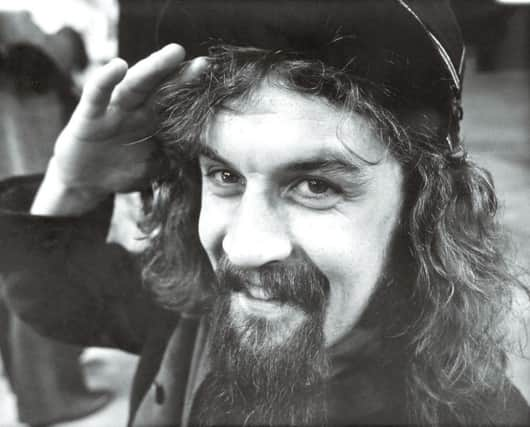The history of the Glasgow accent explained


While it shares words and speech patterns with other varieties of Scots accents, it remains instantly recognisable and has proved remarkably resilient in an age of mass communication.
From Sir Alex Ferguson to Billy Connolly, Glaswegian is commonly heard on screen or on stage.
Advertisement
Hide AdAdvertisement
Hide AdYet its back story is as fascinating as the many people who speak it.
Jane Stuart-Smith, professor of phonetics and sociolinguistics at the University of Glasgow, has been studying the dialect since moving to the city from Oxford in 1997.
“The interesting thing about the Glaswegian accent is it’s a bit like a treasure trove,” she said. “It has a lot quite exotic things going on within it. It has some very interesting sound changes, and as an accent it is quite conservative. Accents, generally, are changing - but Glaswegian is changing in its own way. It clearly has a lot to do with the city and its identity.
“There is evidence of Glaswegian changing through watching of TV, for example, but those changes don’t make it any less distinctive. There’s something about Glasgow - and not just in terms of accents - that it takes in aspects that work for it, and then rejects others. It develops into this eclectic mix of things.”
While the accent has changed over time there is evidence of its consistency - including the use of the glottal stop where a ‘t’ is dropped. A visitor to Glasgow in 1892 observed: “Strangers hurl at us a sort of shibboleth such sentences as “pass the wa’er bo’le, Mr Pa’erson”.
Prof Stuart-Smith has led several major studies of Glaswegian, including the Sounds of the City project from 2011-2015, which studied recordings of more than 140 Glaswegians speaking from the 1970s to the 2000s.
It found Glaswegian had adopted a few UK changes but firmly retained local features.
Advertisement
Hide AdAdvertisement
Hide AdThe academic is now working on a Carnegie Trust-funded project - How stable is the standard? A real-time study of Scottish Standard English - which is due to report shortly.
“When I arrived I discovered there wasn’t much work being done on Glaswegian at that time and I thought it would be a nice of engaging with my students,” she said. “I’ve now studied it for going on 18 years.”
But what makes the dialect so distinctive?
“Glasgow is - or was - a major port,” Stuart-Smith said. “There were several major periods of immigration to the city. The Irish one is well known, but there were also large numbers arriving from Eastern Europe and Italy. It’s Scotland’s melting pot, really.
“But why the accent is particularly distinctive, I think, has a lot to do with the social structures of the city. People are happy to live here - they might move away but they often come back. That might not be unique to Glasgow but it is noticeable.”
A rare example of how Glaswegians used to speak can be found in a British Library archive of recordings made by Commonwealth soldiers in the First World War. In a clip that can be heard online, Private William Bryce reads the Parable of the Prodigal Son from the Gospels. Bryce told researchers in 1916 he considered his mother tongue to be Scottish and viewed the learning of English as “an additional language”.
Would Glaswegians of a century ago recognise the accent spoken in the city today?
“I think they would notice a real change as 100 years is such a step,” Stuart-Smith said. “But at the same time, I think they would still recognise it as Glaswegian.”